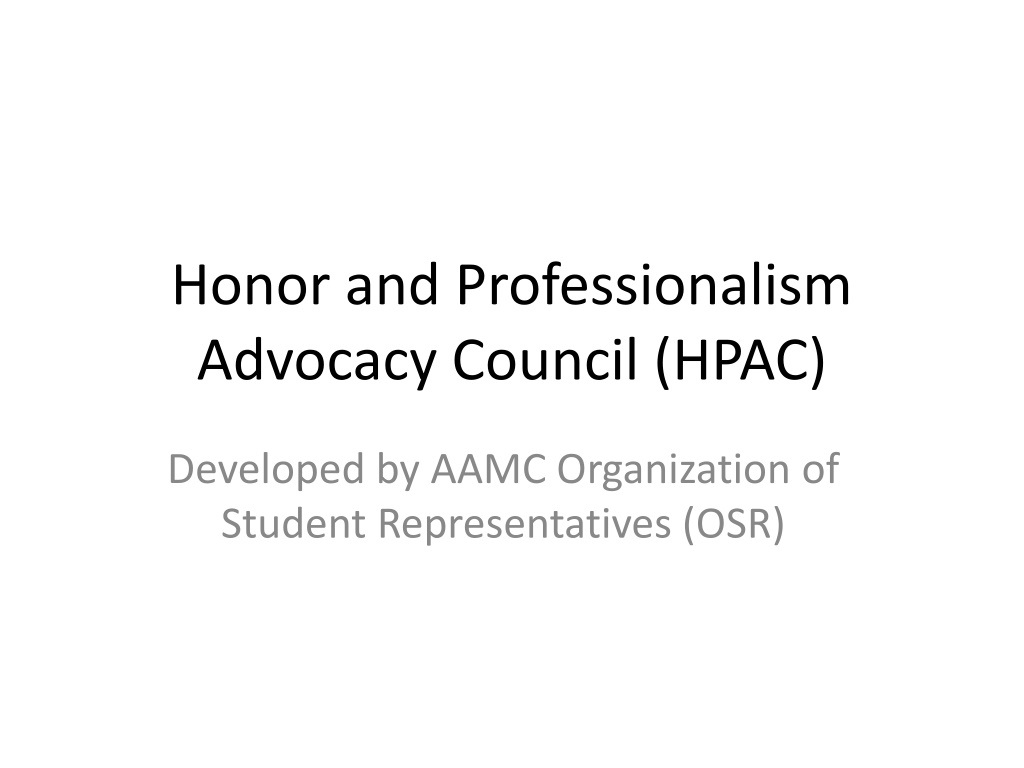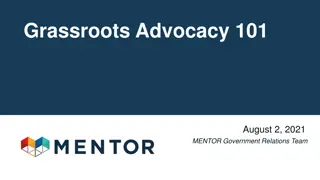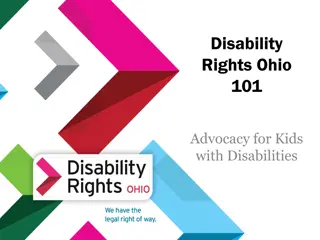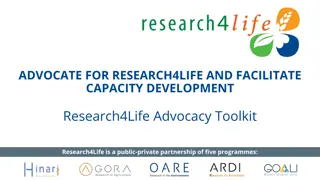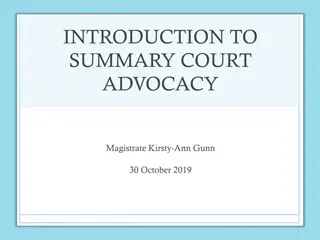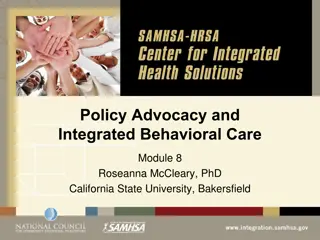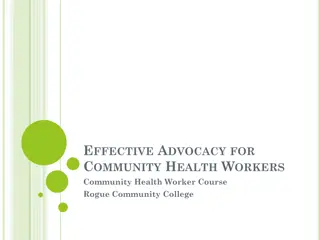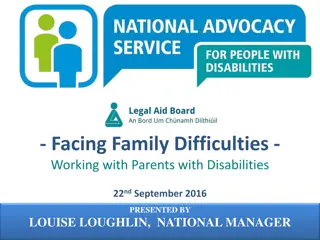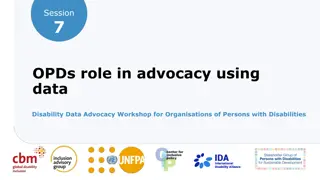Understanding HPAC: A Student Advocacy and Accountability Group
The Honor and Professionalism Advocacy Council (HPAC) is a student group developed by AAMC OSR to address professionalism concerns through confidential methods. Members include a Chair, Vice Chair, and student representatives from different academic classes. The HPAC aims to foster professionalism, improve patient care, and enhance peer relationships by addressing early concerns using anonymous Early Concern Notes (ECN) submitted online. To submit an ECN, visit the provided link or contact HPAC via email. The council meets regularly to review ECN submissions, make recommendations, and support students in responding to concerns.
Uploaded on Sep 29, 2024 | 0 Views
Download Presentation

Please find below an Image/Link to download the presentation.
The content on the website is provided AS IS for your information and personal use only. It may not be sold, licensed, or shared on other websites without obtaining consent from the author. Download presentation by click this link. If you encounter any issues during the download, it is possible that the publisher has removed the file from their server.
E N D
Presentation Transcript
Honor and Professionalism Advocacy Council (HPAC) Developed by AAMC Organization of Student Representatives (OSR)
What is the HPAC? The Honor and Professionalism Advocacy Council (HPAC) is a student accountability and professionalism advocacy group. It represents a confidential, low-stakes arena where professionalism concerns can be addressed by student peers through the use of anonymous Early Concern Notes (ECN).
Who are the HPAC members? The HPAC consists of a Chair, Vice Chair, and four other student members representing each academic class: MS2: Sarah Khayat, (Co-chair), Jeff Merz MS3: Seth Sklare, Kelsey Gregory MS4: Farah Nasraty (Chair), Greg Shaw MS1 members will be chosen by application/interview process in Spring 2014
Why was the HPAC developed? The HPAC developed out of a need for a formalized process to address student professionalism concerns. Address professionalism early Foster climate of professionalism in both the classroom and the clinic Avoid poor professionalism mentions in letter for residency Improve patient care and peer relationships
What is an Early Concern Note The Early Concern Note (ECN) is an online form than can be submitted by faculty, residents, and students to address professionalism concerns This form is available online and is username/password protected ECN submission is anonymous, however identifying information WILL be available to committee members
How do I submit an ECN? Online form available at: http://louisville.edu/medschool/studentaffairs/ecn HPAC@louisville.edu
How does the HPAC work? The HPAC meets bimonthy and as needed to address the most recent ECN submissions Every case is reviewed by the Chair and Vice Chair and then assigned to an HPAC member Student is contacted to meet with the committee to address and respond to concern Committee makes recommendations for the future
What are the implications? 1stECN HPAC with peer-to-peer mentoring 2ndECN HPAC refers to Assistant Dean of Student Affairs (Dr. Mittel) 3rdECN Student Promotions Committee and recurrent professionalism issues to be included in letter for residency
